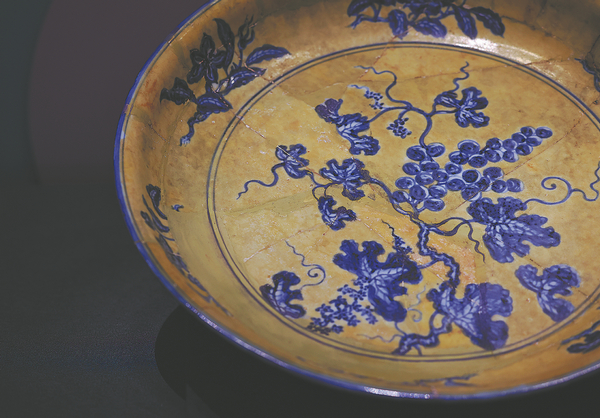Piecing together the precious porcelain past
By Wang Ru | CHINA DAILY | Updated: 2023-08-15 08:08

The restored artifact is only blue and white. Wang says that after the first layer of blue and white patterning on doucai objects was finished, it was checked, and if it met the strict criteria of the day, it was sent on to be finished in colored enamel. If it failed, as the restored artifact had, it would be smashed into pieces.
"Although it is restored, I personally think that it's still a good piece, with great artistic value … it's really beautiful. It's a pity that it was smashed," says Wang.
He says that it was originally thought that doucai first appeared during the reign of Emperor Chenghua (1465-87), and reached its peak soon after. However, the excavation of the Imperial Kiln has revealed that an embryonic form of the technique existed during the time of Emperor Xuande (1426-35).
"Doucai porcelain made during the reign of Emperor Chenghua is viewed as one of the highest artistic forms of Ming and Qing decorative porcelain. It is also popular on the antiques market," says Wang,
He adds that in 2014, a doucai cup dating back to the reign of Emperor Chenghua was auctioned at Sotheby's Hong Kong for just over HK$280 million ($35.8 million).
























